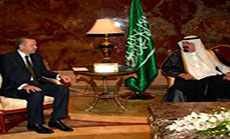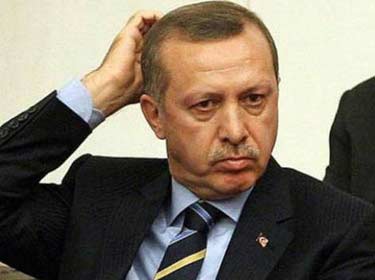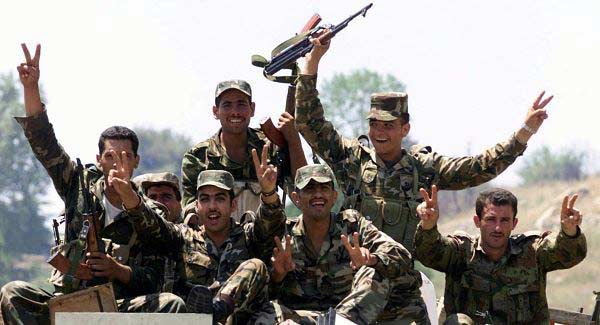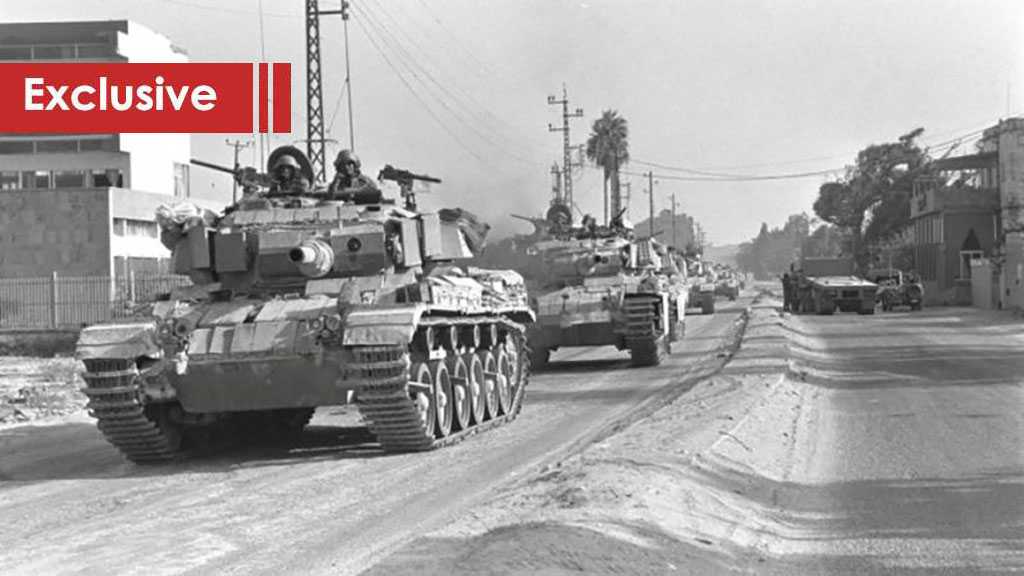Saudi Arabia: Damages Restoration...Turkey: The Biggest Loser

Hossam Matar
Saudi Arabia: Damages restoration
This year, Saudi Arabia managed to make up for a series of losses on the Arab-Sunni level, in tandem of its failure in downplaying Iran's regional clout. The overall of what Riyadh achieved was of Ankara's share. The biggest Saudi accomplishment was the toppling of the ruling of the Muslim Brotherhood in Egypt and providing a substitute that was compliant with the Saudi interests. The Saudis terminated the era of the Brotherhood in no time, an era that was inaugurated with a US blessing and under a joint Turkish-Qatari auspices. Soon, the change in Egypt took a toll on the situation in Libya, Tunisia, Gaza and Qatar. This is Saudi Arabia's year to fix balances on the Arab-Sunni level.
On the other hand, the Kingdom was witnessing the end of its dream in Syria, that is to say the end of the project of overthrowing Syria's state and regime. Yet more rage and terrorism surged, only to pay off this failure, through destruction and genocides. In Lebanon and Iraq, KSA couldn't break the existing balances. It just isn't the linchpin in neither country, with its role being overshadowed by the Iranian umbrella. But it was in Yemen where KSA endured the most significant loss that shall improve the chances of a settlement with the Iranians. The unexpected spiraling of the Jihadi movements provoked Saudi Arabia, especially amid a Turkish patronage of ISIS that is directed against both Iran and the Kingdom.
Turkey: the biggest loser

It is the year of razing the imperial dream of the Justice and Development Party. The downfall of the Brotherhood pushed the Americans to re-place the Turkish after the Saudis. The haughty Turkish illusions and the lack of experience led to Turkish confrontations in all directions, almost leading to complete isolation. In parallel with Erdogan's internal successes, external fiascos piled up. An emperor inside yet a dwarf outside. Erdogan is a fancier of the "zero game." He seeks monopoly instead of partnership. However, Saudi Arabia and Iran are better skilled in the region. Nothing is left for the Turkish for the time being except for covering ISIS, keeping firm in terms of the Syrian settlement, spread sectarian tension, and fuel incitement between Iran and KSA.
Iran: Clinching gains
Iranians realized that, amid the current juncture, the sanctions tightened against them and the drastic war on Syria and Iraq, they had reached the climax of their regional clout. They thus headed to clinch their gains after they have reaped the West's recognition of their undeniable influence, in addition to a negotiable nuclear power. This step to clinch gains was clear in the success of immunizing the state in Syria, the assumption of a deeper and wider role in Iraq after ISIS expansion, the return of Hamas to the positive openness to Iran, the emergence of the Houthis as a key player in Yemen, and Hizbullah's unprecedented regional role. The line from Tehran to Beirut has been scarred many times, but has luckily got adapted, hence paving the way for bolstering partnership and for strategic administration of this line. Indeed, the axis of the Resistance is scraped; but its rivals are tattered and at loggerheads.
Syria: End of the exhaustion

The events of 2014 allowed the Syrian government and its allies to retake control in crescendo, on the level of the advance on the ground, despite some occasional setbacks. The enemies of Syria moved to plan B, meaning that they moved from toppling the regime to exhausting it to the maximum. On the other hand, the Syrian army and its backers are concentrating their efforts on securing key areas where more than 90% of the population live, through pushing gunmen to the unpopulated outskirts. This strategy has as yet succeeded, especially in Damascus, Homs, and Aleppo. With the big cities and regions having been secured and the gunmen cordoned, the exhaustion is tuned down, and so is violence. In counterpart, development and reconstruction operations has bashfully and progressively kicked off.
This progress by the Syrian army, in line with the end of the Free Syrian Army in favor of "ISIS" and al-Nusra Front and the in-tatters Coalition, enhances the modification of the international approach to the Syrian situation to a more realistic one that sees in fighting terrorism a priority that can only be addressed through the current Syrian command. But the final settlement is still farfetched and makes no part of the 2015 agenda. Nonetheless, with the exhaustion having been out now at best slim, adaptation to the crisis has become endurable for a long time.
"Jihadi" Salafism: Will "ISIS" have the same fate as al-Qaeda?
The strong emergence of "ISIS" and al-Nusra Front came as a result of the sharp regional rift at a time of huge confrontation in Iraq and Syria. The two movements took advantage of this regional juncture in a way that goes beyond everybody's bearing capacity. In 2014, these groups reached the top, and the general pace next year is to witness degradation whose magnitude is directly linked to the Syrian situation.
It is unlikely that these groups extend again towards the cities where the Syrian army regained control. They will most probably lead battles in the countryside. The end of these groups is related to finalizing the international settlement on Syria, especially with the expected defeat of "ISIS" in Iraq. These groups are distinguished with a high sense of risk-taking and nerve. Therefore, opting for suicidal frenetic acts is not implausible.
Brief
The chances of a US-Iranian settlement are high for the first time, and so are the chances of special settlements between Ian and Saudi Arabia especially in Iraq, Lebanon and maybe in Yemen. "ISIS" has gone beyond its peak and we will be probably witnessing its end in Iraq, and next in north Syria. The "Israeli" is still taking advantage of the Arab "civil" wars, only to augment attacks on the Palestinians. The Americans, for their part, are likely to preserve their cautious approach in the region away from dicey adventures. The headline of the American effort is clinching a regional balance that cohabits with Tehran's new role, but that does not allow it to expand.
Notwithstanding, surprising developments are still very likely to take place. Uncertainly currently prevails over the region, considering the numerous players, shaky balances, rash reactions, and the affiliation of the central governments with powers and organizations of special standards and high ambitions. By and large, it seems that the Middle East is heading to clinch the new powers' balances. But this process won't be completed any time in 2015. It is just the beginning of drawing a post Arab Spring regional system.
Source: al-Ahed news




